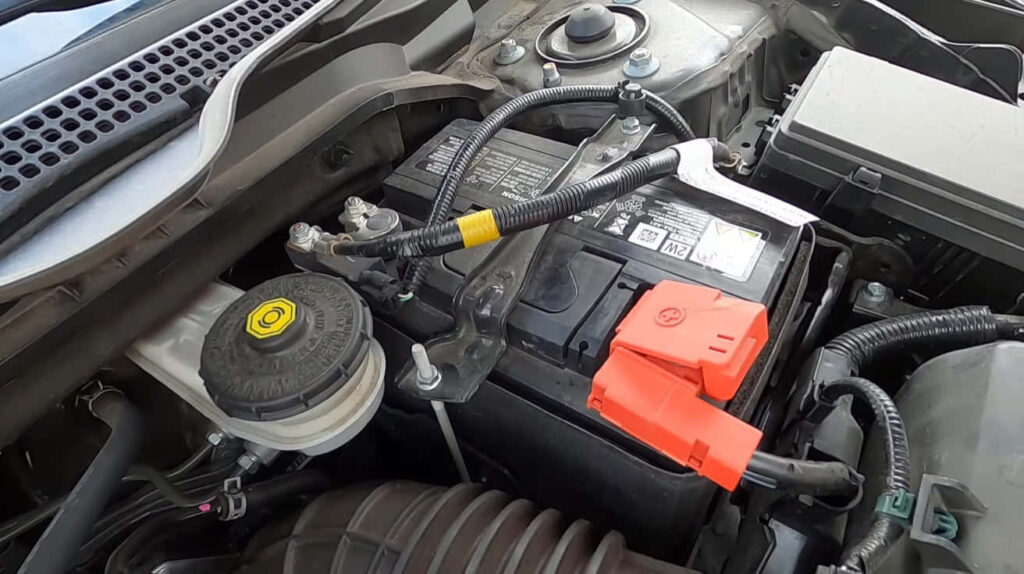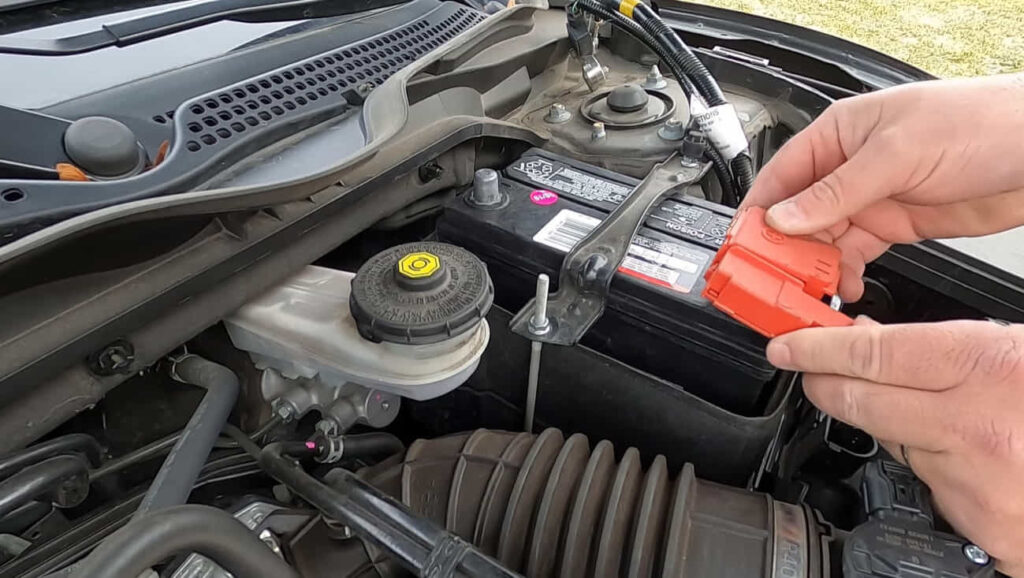When you have an issue with a Honda Civic battery not charging, it may leave you feeling frustrated.
After all, you rely on your car battery for a number of things. But most of all, when it fails to charge, then there won’t be any power to your ignition system. What this means is that your engine won’t be able to start.
If you are in this situation, there are a few reasons why this happens and what you can do about it. Learn more about why your Honda Civic battery is not charging and some fixes you can try.

Contents
Causes of Honda Civic Battery Not Charging
So, you just realized that your battery is not charging as it should. What gives?
When a battery fails to charge, there are certain reasons behind this. Here are some of the many causes:
1. Alternator Problems
Your battery gets charged by your alternator as the engine runs. So, if there is a problem with your alternator, this makes it difficult for the battery to get charged correctly.
Although your alternator should be able to last long, its lifespan is still limited. Thus, you may have to replace it every 80,000 miles or every 7 years.
There are a few signs to look out for when it comes to a faulty alternator. For instance, the headlights may get dimmer, the engine tends to stall after you jumpstart it, and this also leads to a mismanaged current between your battery and the alternator.
2. Wiring Issues
When your engine vibrates, battery connections tend to get loose. Once the battery cable gets loose or damaged, this minimizes electrical contact between your battery and alternator.
There are a few other wiring issues that may arise such as an ungrounded neutral. This may also result in an electrical issue in your charging system.
3. Power Drain
Your interior lights and other car accessories typically shut down once you turn your engine off. But if you fail to power these down, they can cause a power drain on your battery.
There are also some components that need a live connection to achieve particular settings. These can also generate an abnormal and excessive draw on your battery, which leads to a battery failure.
4. Headlights Left On
If you have accidentally left your headlights on, this can cause a flat battery. This is why you should turn your headlights off to prevent these from drawing power from your car battery – even if your engine is turned off.
5. Old or Damaged Battery
Next up, there is the issue with old batteries. Generally lead-acid car batteries can last for up to 4 years. However, when it is damaged or old, it tends to form cracks or bloat. Eventually, it can also leak some battery acid and become prone to corrosion.
When there is excessive corrosion to your battery, this impacts its charging ability and electrical connectivity. There is also the issue with sulfation that arises with older batteries. What this means is that the battery cell’s internal plates are damaged. All lead-acid car batteries are prone to sulfation, yet you should be able to reverse any damage when detected earlier.
6. Issues With the Alternator Belt
Your alternator belt is what drives your car’s alternator. This ensures the right alternator speed that follows your engine speed.
In some cases, your belt may get frayed or loose, which slips off your alternator pulley. Once this happens, it is difficult for the alternator to keep up with the required power by your engine.
7. ECU Problems
Many modern cars come with an onboard computer or the Engine Control Unit that manages the car’s electrical system. When there are ECU problems, this can result in issues with your charging system. Some signs of a problematic ECU include the Check Engine Light turning on or the engine stalling.
If you notice these signs, it is best to have your mechanic diagnose the problem immediately to prevent it from getting worse.
8. Faulty Battery Charger
And lastly, an external battery charger may not be connected properly, which can cause your Honda Civic battery to not charge. This is why you need to make sure that your positive and negative leads are connected to the right terminal.
There are also some batteries that need a particular charger, which is why the wrong type of charger could result in a Honda Civic battery not charging.
How To Fix Honda Civic Battery Not Charging

When you have an issue with your car battery not charging, there are a few things you can do to fix it.
For instance, you need to have your electrical system inspected by a specialist. They can also check your battery charge to make sure you don’t have a flat battery or if there is a need to have it replaced.
Using a voltmeter, they should be able to check if the charge is ideal even if the battery is not functioning well. With a 12.4 -volt reading, it is a healthy charge but lacking optimal functionality. If it is under this value, it means the battery is not charged fully. On the other hand, a reading of 12.9 volts means there is excessive voltage to your battery.
When your battery is unable to hold the right charge, you will need to have it replaced. Otherwise, you may have to deal with a dead or flat battery and cause you so much hassles along the way.
Read More: Causes Of Honda Civic Radio Not Working – And What You Can Do
Final Word
With all these things in mind, it is best to be aware of the signs and symptoms of a failing battery. Then, you can have the key components inspected by a mechanic and have the battery replaced as necessary to avoid further issues along the way.